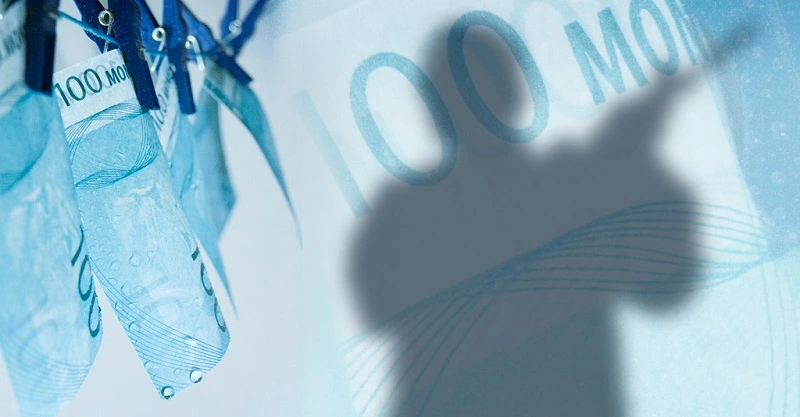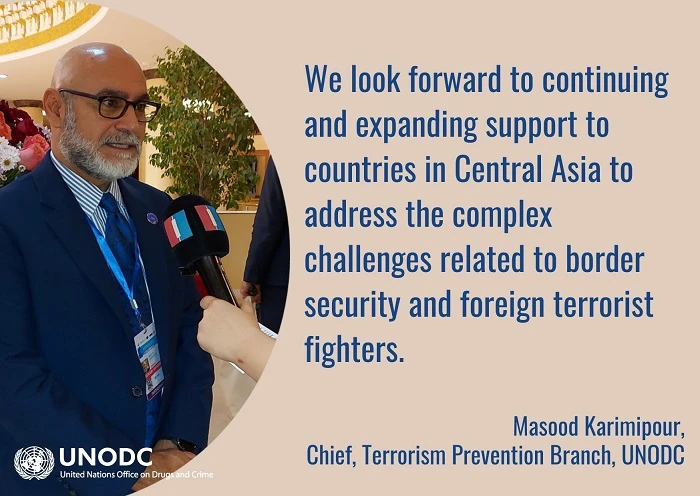

India has voiced its concern over terror attacks (Image courtesy: Twitter/@ONUDC)
As Central Asia continues to face significant security challenges, especially threats emanating from the territory of Afghanistan, India will lead an open briefing of the Counter Terrorism Committee of the United Nations Security Council (UNSC) at the UN Headquarters in New York on Tuesday.
Ambassador Ruchira Kamboj, Permanent Representative of India to the UN, in her capacity as current Chair of the CTC, will preside over discussions re-evaluating the evolution of the terrorist threat to the region and measures taken by the Member States of Central Asia to counter violent extremism, considering the current threat level.
Speakers, including Permanent Representatives to the United Nations from Kazakhstan (Akan Rakhmetullin), Kyrgyzstan (Aida Kasymalieva), Tajikistan (Jonibek Hikmat), Turkmenistan (Aksoltan Ataeva) and Uzbekistan (Bakhtiyor Ibragimov), will deliver their presentations followed by an interactive discussion.
In another session, experts will focus on international and regional cooperation mechanisms aimed at supporting Central Asian states’ efforts in countering terrorism and violent extremism.
Representatives of the Al-Qaida/ISIL (Da’esh) Monitoring Team, the Terrorism Prevention Branch (TPB) of the United Nations Office on Drugs and Crime (UNODC), Commonwealth of Independent States Anti-Terrorism Centre (CIS-ATC), Eurasian Group on Combatting MoneyLaundering and Terrorism Financing (EAG), Regional AntiTerrorist Structure of the Shanghai Cooperation Organisation (RATS SCO) and several others are also scheduled to speak during the December 20 meeting.


Even though there have been a relatively limited number of terrorism-related attacks or incidents in Central Asia in recent years, the UNSC believes that the terrorist threats to the region should not be underestimated.
“Central Asia continues to face significant security challenges, also because of its immediate proximity to regions marked by terrorist activity. Thousands of individuals from Central Asia travelled to the conflict zones of the Middle East to join the ranks of terrorist groups as foreign terrorist fighters,” it has stated repeatedly, especially since the return of the Taliban regime in Kabul last year.
India too has voiced its concern at the significant increase in the presence of ISIL-K in Afghanistan and their capacity to carry out attacks on other countries.
“The linkages between groups listed by the UN Security Council such as the Lashkar-e-Tayyaba and the Jaish-e-Mohammed as well as provocative statements made by other terrorist groups operating out of Afghanistan pose a direct threat to the peace and stability of the region,” Kamboj said during a UNSC briefing on Afghanistan in August.
“We need to see concrete progress in ensuring that such proscribed terrorists, entities, or their aliases do not get any support, tacit or direct, either from Afghan soil or from the terror sanctuaries based in the region,” the Indian Ambassador mentioned.
The issues were also deliberated upon during the First India-Central Asia Meeting of National Security Advisers/Secretaries of the Security Council hosted by National Security Advisor (NSA) Ajit Doval in New Delhi this month.
As reported by IndiaNarrative.com, Japan and the United Nations Development Programme (UNDP) signed a US$ 4.1 million (584 million Yen) agreement in Astana earlier this week which aims at preventing violent extremism from permeating young people in the five Central Asian countries of Uzbekistan, Kazakhstan, Kyrgyzstan, Tajikistan, and Turkmenistan.
Sharing a long border with Afghanistan, the Central Asian countries consider themselves at great geopolitical risk of being susceptible to violent extremism.
As per the UN estimates, more than 5,000 terrorist fighters from Central Asia have travelled to Syria and Iraq and terrorism by young people from Central Asia is occurring frequently both inside and outside the region.
Experts also believe that due to the spread of the Covid pandemic and the prolonged situation in Ukraine, the Central Asian region is seeing soaring prices and worsening employment conditions, thus drawing the youth of the region, who are in a vulnerable situation, into violent extremism.
Also Read: In message to China, India and Central Asia propose transparent connectivity projects
Union Minister of Coal and Mines G Kishan Reddy on Tuesday held an inter-ministerial meeting…
India's largest automobile in-plant railway siding at Maruti Suzuki's Manesar facility started operation on Tuesday,…
Google on Tuesday unveiled its Safety Charter for India's AI-led transformation, at the "Safer with…
The human rights organisation of the Baloch National Movement (BNM), Paank, has published its most…
The Israel Defence Forces (IDF) on Tuesday claimed that it has killed Iran's senior-most military…
Amid escalating conflict between Iran and Israel, the Ministry of External Affairs (MEA) on Tuesday…